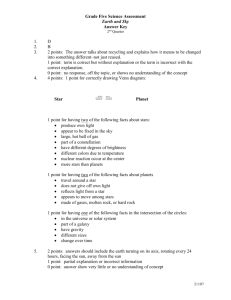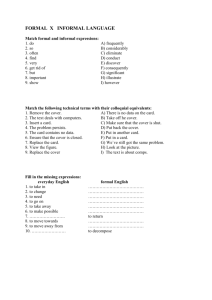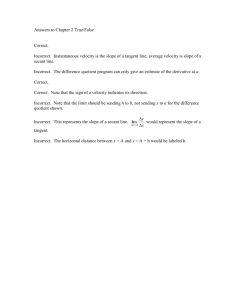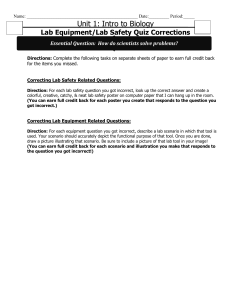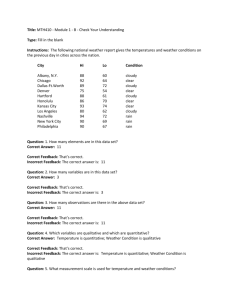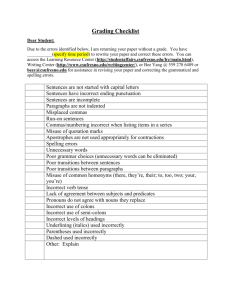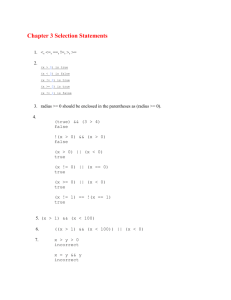How to Avoid Colloquial (Informal) Writing
advertisement
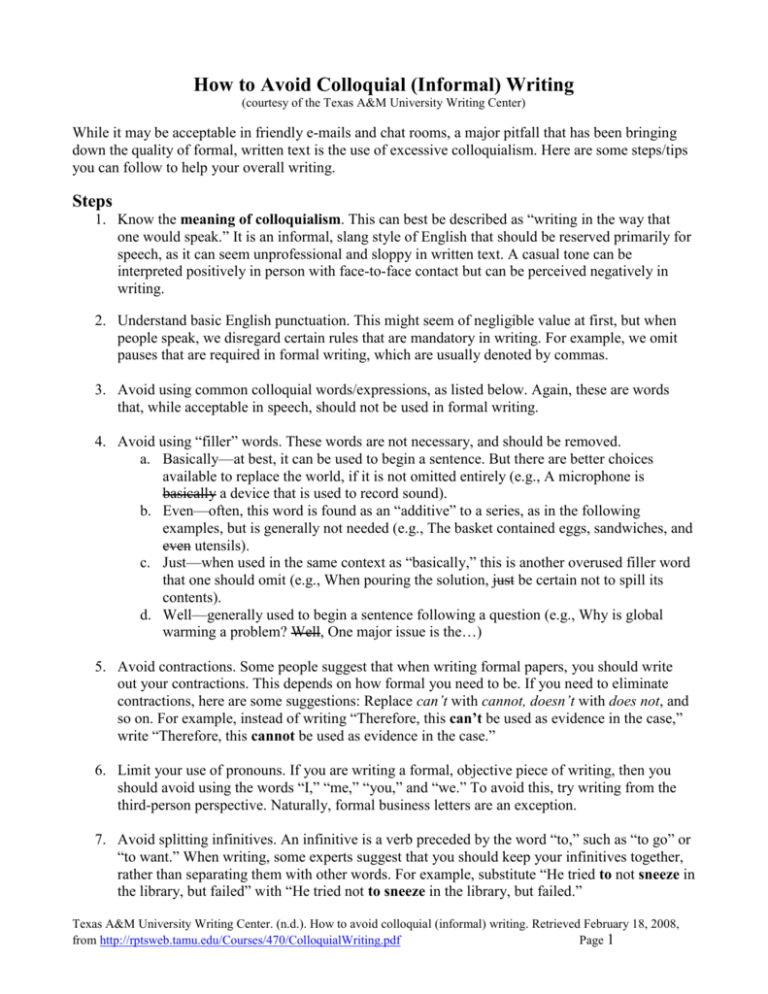
How to Avoid Colloquial (Informal) Writing (courtesy of the Texas A&M University Writing Center) While it may be acceptable in friendly e-mails and chat rooms, a major pitfall that has been bringing down the quality of formal, written text is the use of excessive colloquialism. Here are some steps/tips you can follow to help your overall writing. Steps 1. Know the meaning of colloquialism. This can best be described as “writing in the way that one would speak.” It is an informal, slang style of English that should be reserved primarily for speech, as it can seem unprofessional and sloppy in written text. A casual tone can be interpreted positively in person with face-to-face contact but can be perceived negatively in writing. 2. Understand basic English punctuation. This might seem of negligible value at first, but when people speak, we disregard certain rules that are mandatory in writing. For example, we omit pauses that are required in formal writing, which are usually denoted by commas. 3. Avoid using common colloquial words/expressions, as listed below. Again, these are words that, while acceptable in speech, should not be used in formal writing. 4. Avoid using “filler” words. These words are not necessary, and should be removed. a. Basically—at best, it can be used to begin a sentence. But there are better choices available to replace the world, if it is not omitted entirely (e.g., A microphone is basically a device that is used to record sound). b. Even—often, this word is found as an “additive” to a series, as in the following examples, but is generally not needed (e.g., The basket contained eggs, sandwiches, and even utensils). c. Just—when used in the same context as “basically,” this is another overused filler word that one should omit (e.g., When pouring the solution, just be certain not to spill its contents). d. Well—generally used to begin a sentence following a question (e.g., Why is global warming a problem? Well, One major issue is the…) 5. Avoid contractions. Some people suggest that when writing formal papers, you should write out your contractions. This depends on how formal you need to be. If you need to eliminate contractions, here are some suggestions: Replace can’t with cannot, doesn’t with does not, and so on. For example, instead of writing “Therefore, this can’t be used as evidence in the case,” write “Therefore, this cannot be used as evidence in the case.” 6. Limit your use of pronouns. If you are writing a formal, objective piece of writing, then you should avoid using the words “I,” “me,” “you,” and “we.” To avoid this, try writing from the third-person perspective. Naturally, formal business letters are an exception. 7. Avoid splitting infinitives. An infinitive is a verb preceded by the word “to,” such as “to go” or “to want.” When writing, some experts suggest that you should keep your infinitives together, rather than separating them with other words. For example, substitute “He tried to not sneeze in the library, but failed” with “He tried not to sneeze in the library, but failed.” Texas A&M University Writing Center. (n.d.). How to avoid colloquial (informal) writing. Retrieved February 18, 2008, from http://rptsweb.tamu.edu/Courses/470/ColloquialWriting.pdf Page 1 a. If you wish to use it for emphasis, as in, “He meant to never sneeze but sometimes couldn’t help it,” most professional editors would accept that. Note that this in now considered an archaic rule and professionals at all levels of writing will use either form as it suits their purpose. b. Avoid ending your sentences with a preposition. In most cases, it is inappropriate to end a sentence with a preposition (e.g., down, during, in, into, of, since). For example, replace “What is the bag filled with?” with “What is inside the bag?” There are cases where an additional preposition may be regarded as a filler word, as in “Where are you at?” 8. Avoid clichés. Clichés are phrases that have been overused to the point where they have completely lost originality. a. Hercules was as strong as an ox. b. I have to give an arm and a leg to find a parking spot during the holiday season. Common Colloquial Words and Expressions A lot – This phrase should be replaced with something less informal, such as “several,” or “many.” Keep in mind that “alot” is not a word. o “He has a lot of reasons for justifying his actions.” Incorrect o “He has several reasons for justifying his actions.” Correct Ain’t – The word “ain’t” has been incorrectly used as a contraction for “am not,” “is not,” “are not,” “has not,” and “have not.” “Ain’t” should never appear in formal writing. o “This ain’t working.” Incorrect o “This is not working.” Correct Alright – This word is always nonstandard, and should not be used in formal writing. It is a compound of “all right.” o “Alright, I am ready to go.” Incorrect o “All right, I am ready to go.” Correct Anyways – The word “anyways” is always nonstandard and should not be used in formal writing. You should always use “anyway” or rephrase or omit it. o “Anyways, thank you for your time.” Incorrect o “Anyway, thank you for your time.” Correct Could of, would of, should of – These are incorrect phrases, usually the result of trying to write what one hears (or thinks one hears). The phrases “could have,” “would have,” and “should have” are correct. Get – From time to time, this word replaces “understand.” o “Do you get the homework?” Incorrect o “Do you understand the homework?” Correct Gonna, Wanna – These are the condensed versions of “going to” and “want to,” respectively, which should be revised in formal writing accordingly. o “I am gonna go to the supermarket.” Incorrect o “I am going to go to the supermarket.” Correct Kind, kind of –The use of these words to mean “somewhat” or “rather” is informal and should be avoided. “Kind of,” when meant as “type of,” is acceptable, but is somewhat overused in language. Consider replacing with “type of.” o “It is kind of cold outside.” Incorrect Texas A&M University Writing Center. (n.d.). How to avoid colloquial (informal) writing. Retrieved February 18, 2008, from http://rptsweb.tamu.edu/Courses/470/ColloquialWriting.pdf Page 2 o “It is rather cold outside.” Correct o “A parakeet is a kind of bird.” Incorrect o “A parakeet is a type of bird.” Correct Like – Consider replacing with “as if,” “similar to,” or “such as,” depending on the context. o “It is like he never existed.” Incorrect o “It is as if he never existed.” Correct Okay/ok – This word is a derivative of “O.K.,” which appeared as an abbreviation for “ollcorrect” (A conscious misspelling of “all correct”) in 1839. It is similar to “alright.” o “Is everyone okay?” “Is everyone ok?” Incorrect o “Is everyone all right?” Correct Pretty – Using this word tends to weaken one’s argument, when in place of “very,” and should be either replaced or eliminated entirely. o “I think that this is a pretty good investment that your company should consider.” Incorrect o “I think that this is a very worthwhile investment that your company should consider.” Correct Real, really – Replace the word “real,” as used in this context. o “The coffee is real hot!” Incorrect o “The coffee is very hot!” Correct Sorta, sort of – Similar to “kinda” and “kind of,” these should be replaced when used to mean “rather” or “somewhat.” o “The project is sorta long.” Incorrect o “The project is somewhat long.” Correct Use to – The proper form of this phrase, in writing, should be “used to.” In speech, the d is sometimes silent, which makes for the confusion in writing. o “As a child, I use to go to nursery school.” Incorrect o “As a childe, I used to go to nursery school.” Correct Examples of Colloquial Writing and Non-colloquial Writing John, I’m looking for a job and I’ve heard through the grapevine that you’re looking for a workhorse to basically run the shop with. Well, I’m the man of the hour, cause I’ve got a lot to offer. I’m pretty hard-working, and I’m really good about being on time. I’m use to working by myself. Anyways, let me know if you want to get together for an interview, okay? -Unprofessional Joe Dear John: I understand that you are looking for a strong worker to assist you in your shop. I would appreciate consideration because I am diligent, punctual, and accustomed to working with minimal supervision, Please contact me if you are interested in setting up an interview. Thank you for your time. Respectfully, Professional Joe Texas A&M University Writing Center. (n.d.). How to avoid colloquial (informal) writing. Retrieved February 18, 2008, from http://rptsweb.tamu.edu/Courses/470/ColloquialWriting.pdf Page 3

